meandering around the rabbit hole, and per 'the internet does not forget, some interesting titbits from a time a short while ago
I have no explanations and offer none w/r to what happened to the Ukraine having been tee-ed up and looking to be rug-pulled, if rug-pulled, time shall tell
I think the idea that China China China would supply weapons to Russia Russia Russia to hit Ukraine Ukraine Ukraine is agi-propaganda of some sort, or a tick for tick response to respond to foreign forces shipping weapons to the Republic of China province of Taiwan that is sovereign territory of all Chinese, meaning should the collective garden west wish to join battle, China indicating alacrity as a jungle would if stirred
nbcnews.com
Fed up with the U.S., Ukraine cuts deals with China and shuts up about the Uyghurs
Without explanation, Ukraine took its signature off a statement asking China to let observers into Xinjiang to investigate allegations of persecution of Uyghurs.
July 29, 2021, 4:30 PM HKT
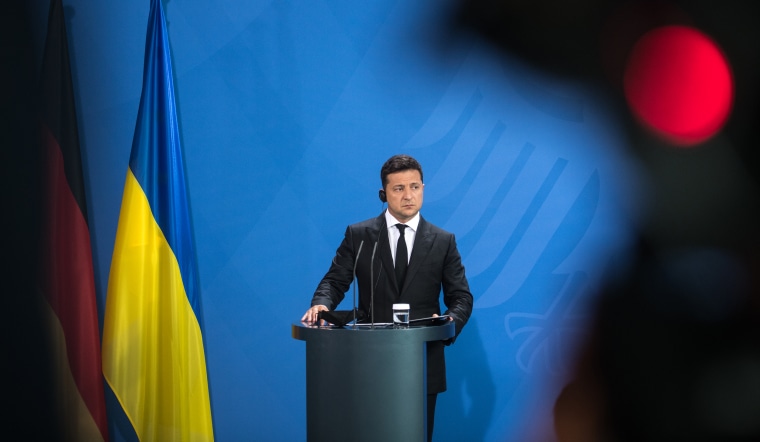
WASHINGTON — Frustrated with the U.S., Ukraine is cutting deals with a rival superpower, inviting China to build infrastructure while holding back criticism of Beijing's human rights record.
Ukraine last month touted agreements with China to build airports, roads and railways in the Eastern European country and expressed gratitude for deliveries of Chinese-made Covid-19 vaccines.
Just days before the cooperation deals were clinched, Kyiv chose to stay silent about China's alleged human rights abuses.
At the U.N. Human Rights Council, Ukraine withdrew its signature from a joint statement calling on China to allow independent observers into the country's Xinjiang region to investigate reports of persecution of Uyghurs and other Muslim minorities.
The foreign ministry has yet to offer a rationale for the move, and it did not respond to a request for comment.
Andriy Sharaskin, a member of the Ukrainian parliament's foreign policy committee, said China demanded that Ukraine take its signature off the joint statement and made it clear that promised deliveries of Covid-19 vaccines would be scrapped.
"When Ukraine signed the declaration, China started asking [Ukraine] to withdraw it. And at the same time, they blocked the shipment of the vaccines we already paid for," Sharaskin told NBC News, saying foreign ministry officials briefed him at the time.
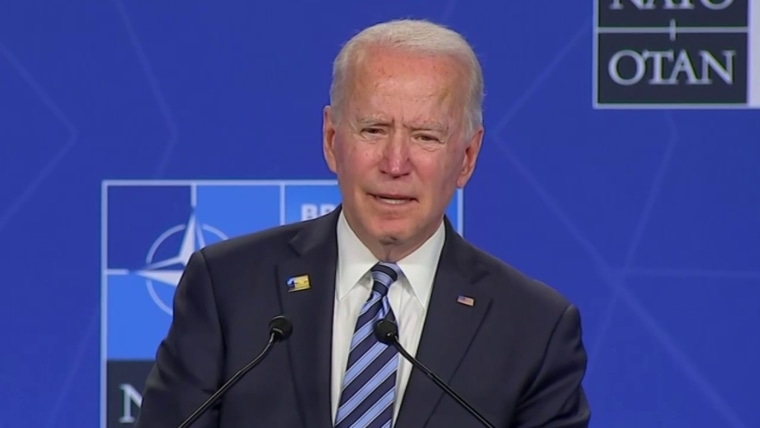
Ukraine has struggled to secure a sufficient supply of vaccines and to get shots into arms, with its vaccination rate lagging behind those of most countries in Central and Eastern Europe.
The Associated Press, citing anonymous sources, first reported that China threatened to cancel vaccine shipments if Ukraine did not withdraw its support for the joint letter led by Canada.
China's embassy in Ukraine has publicly denied having exerted any pressure on Ukraine over the joint statement. The Chinese Embassy in Washington did not respond to a request for comment.
In the Ukrainian parliament this month, Foreign Minister Dmytro Kuleba faced questions about whether the government had taken a U-turn away from the West. He said Ukraine remained committed to "Euro-Atlantic integration" and opposed violations of human rights. He did not say why Kyiv held its fire over China and the Uyghurs.
"As for your question, I can say that we are currently in the process of consultations with our Western partners and China on that issue. As soon as the process ends, we will explain our position," he said.
But Oleksiy Arestovych, adviser to the Ukrainian president's office, later delivered a blunt warning to the U.S. and its allies.
"My main message would be: If the West keeps surrendering Ukraine's interests for a friendship with Russia, Ukraine may turn to the East," Arestovych said July 18.
Ukraine has been in conflict with Russia, its much more powerful neighbor, since 2014, when Moscow invaded and annexed the country's Crimea region. Pro-Russian separatists also control parts of eastern Ukraine, with sporadic clashes continuing along the front line.
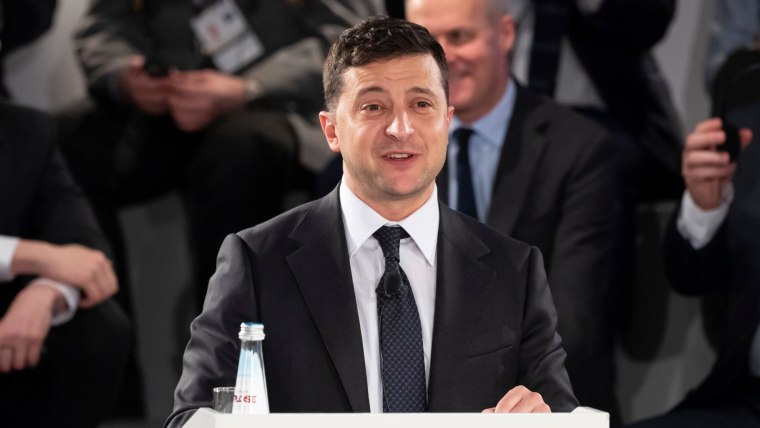
Despite Russian opposition, Ukraine's government has vowed to align the country with the European Union and NATO, not Moscow. But Ukraine has grown impatient with its Western allies and believes it requires more support as it tries to counter Russia.
President Volodymyr Zelenskyy has made no secret of his bitter disappointment with the Biden administration over how it has handled Russia's planned gas pipeline to Europe, accusing the White House of failing to take decisive action to halt the project, which Kyiv says will give Moscow leverage over European governments.
Zelenskyy also had been asking for a face-to-face meeting with Biden for months, and it was not until last week that the White House announced that Biden would host him for a U.S. visit Aug. 30.
Amid friction with Washington, Ukraine announced infrastructure construction plans with China this month, and Zelenskyy spoke to Chinese President Xi Jinping for the first time. They discussed "the full realization of the potential of bilateral cooperation, especially in the areas of trade and major infrastructure projects," according to a statement from the Ukrainian president's office.
Zelenskyy and Xi noted that China was Ukraine's biggest trading partner and agreed to create a visa-free travel regime between the two countries, the statement said.
In its diplomacy with China, Zelenskyy's government is deliberately sending a signal to Washington that Ukraine's partnership and cooperation cannot be taken for granted, said a source close to the president's office.
The gist of the government's approach amounts to: "If you don't fully support us, we will go to China," the source said.
But Ukraine's gambit carries risks and could easily backfire, the source said. "Ukraine must preserve its special relations with its long-standing partners, not search for new ones," the source said.
For some time, China has viewed Ukraine as one of several potential hubs for extending its economic reach into Eastern Europe and beyond as part of its global Belt and Road Initiative, former U.S. officials and experts say. A Chinese shipping company took over container operations at the Greek port of Piraeus more than a decade ago, and Chinese companies have made major investments in Serbia and Hungary worth billions of dollars, including a planned railway through the Balkans. Serbian President Aleksandar Vucic kissed the Chinese flag when a planeload of medical supplies arrived from Beijing last year, and his government was the first in Europe to order Chinese-made vaccines.
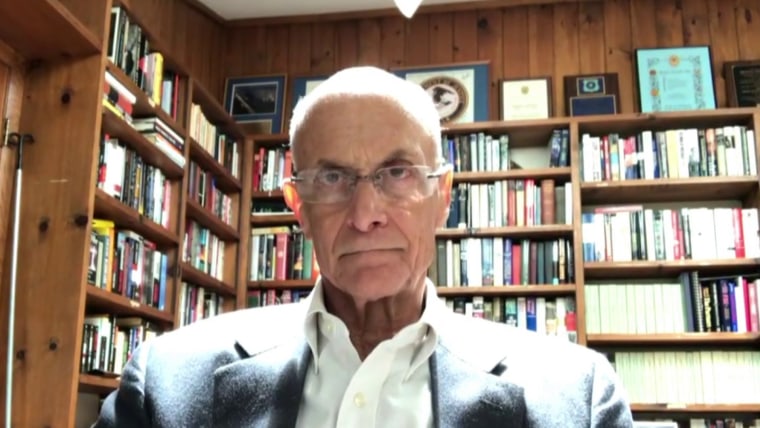
China, which has invested heavily in a transformation of its military and is eager to reduce its dependence on Russian weapons and equipment, also has taken a strong interest in Ukraine's defense industry.
"If I were Chinese and looking to diversify my sources of military capabilities ... Ukraine is not a bad place to look," said Jim Townsend, a former U.S. deputy assistant secretary of defense for European and NATO policy who is now an adjunct senior fellow at the Center for a New American Security think tank.
Strings attachedChina's infrastructure projects around the world often come with a price, both financial and political. Most of the projects are financed through loans, which many poorer countries are unable to pay back, allowing Beijing to take ownership of the sites.
China also often extracts political favors from countries in exchange for trade or infrastructure arrangements, former officials and experts said.
Brad Adams, executive director of the Asia Division of Human Rights Watch, said China has a pattern of coercing governments to refrain from criticizing Beijing's human rights record. Sometimes the pressure takes the form of threats, and sometimes China offers economic benefits if a country bows to Beijing's demands, Adams said.
China put Ukraine in a bind when it linked lifesaving vaccines to avoiding criticism of Beijing's human rights record, said Sharaskin of the Ukrainian parliament's foreign policy committee.
"This situation was cleverly used by the Chinese in order to draw Ukraine away from the West and closer to China. It is a part of the information war. It is Chinese expansionist politics," he said.
Still, it would be wrong to say Ukraine is forsaking the West, Sharaskin said.
Kyiv this year rebuffed a Chinese proposal to buy a Ukrainian aerospace company, Motor Sich, which makes helicopter and jet engines. U.S. officials urged Ukraine to reject the deal, and Kyiv so far has chosen not to cross that potential red line after it initially welcomed the offer. Authorities in Kyiv imposed sanctions in January against Skyrizon, the Chinese company trying to obtain a majority stake in Motor Sich.
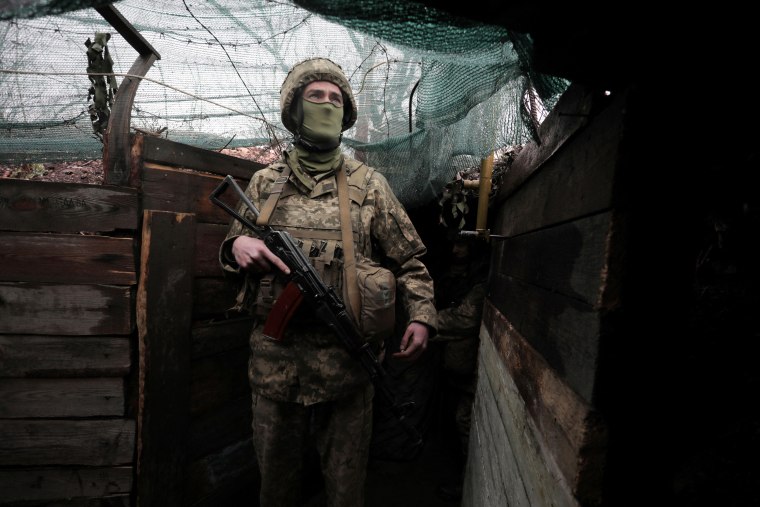
A Ukrainian serviceman stands at his position with Russian-backed separatists near the small city of Marinka in the Donetsk region on April 20.Aleksey Filippov / AFP via Getty Images"
This was a political decision that irritated the Chinese side. It was a painful slap from official Kyiv," said Sergiy Gerasymchuk of the Strategic and Security Studies think tank in Ukraine.
A State Department spokesperson said that the U.S. is concerned about China's "predatory business practices" and that Chinese "state-owned and -controlled enterprises are not interested in Ukraine's defense industry to create commercial opportunities or job growth in Ukraine."
"They use these acquisitions to gain control over strategic chains and access to foreign technology in support of their strategic and military-industrial objectives, which are contrary to U.S. national security interests and those of our allies and partners," the spokesperson said.
As for China's attempt to link vaccines to favorable treatment by Ukraine, the Biden administration said it was aware of the reports of Beijing's pressure tactics.
"We condemn reports of the PRC using vaccines as a tool of coercion around the world, including in Ukraine," the State Department spokesperson said, referring to China by the initials for its formal name, the People's Republic of China.
"Lifesaving vaccines must never be used as a tool of political pressure. We strongly condemn any effort to tie provision of vaccines to political or economic conditions or favors. By contrast, the United States is proud to have just delivered 2 million doses of the Moderna vaccine to Ukraine, with no strings attached," the spokesperson added.
Evelyn Farkas, who was the U.S. deputy assistant defense secretary for Russia, Ukraine and Eurasia from 2012 to 2015, said Ukraine was not naive about China, despite its dissatisfaction with Washington over the Russian Nord Stream 2 gas pipeline.
"I don't think they want to increase whatever tension exists at the official levels right now. It doesn't really make sense for Ukraine. In the long run, in the medium run and the short run, they know their interests lie with the United States," Farkas said.
Oleg Nikolenko, the spokesperson for Ukraine's foreign ministry, said Ukraine remained committed to a trans-Atlantic future.
He added: "However, this does not mean we will artificially hold the progress in our bilateral relations with certain countries or regions. Ukraine's national interest will always be our top priority, no matter where the country we are interested in is located." |




